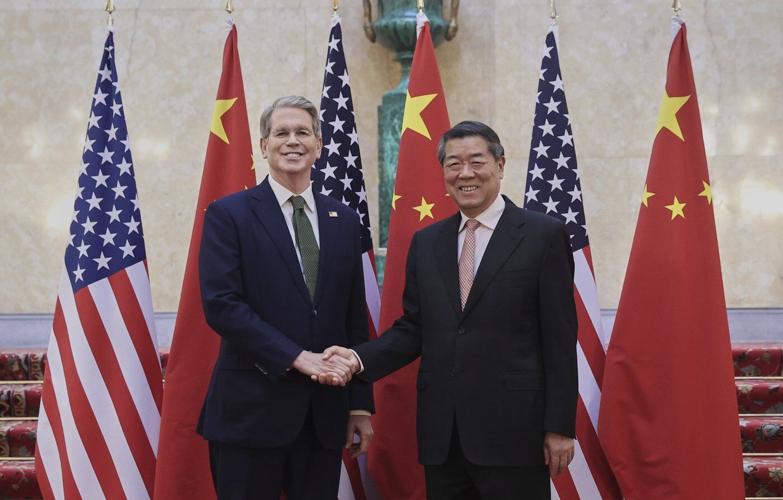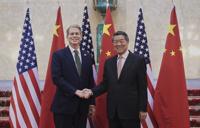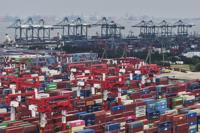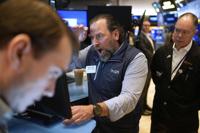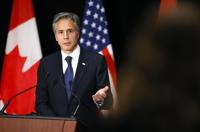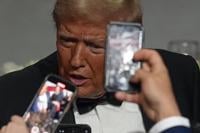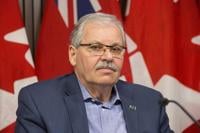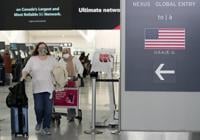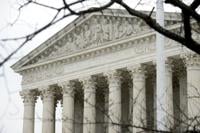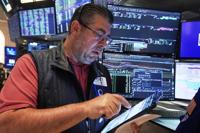BANGKOK (AP) — Washington and Beijing have signed a trade agreement that will make it easier for American firms to obtain magnets and rare earth minerals from China that are critical to manufacturing and microchip production, U.S. Treasury Secretary Scott Bessent said Friday.
The agreement comes after China retaliated against imposed by the Trump administration on Chinese goods and moved to slow export of rare earth minerals and magnets much-needed by U.S. industrial interests.
Bessent said on Fox Business Network’s “Mornings with Maria” that Trump and Chinese President Xi Jinping “had a phone call” previously "and then our teams met in London, ironed this out, and I am confident now that we, as agreed, the magnets will flow.”
“Part of the agreement was tariffs coming down and rare earth magnets starting to flow back to the U.S.," Bessent said. "They formed the core of a lot of our industrial base. They were not flowing as fast as previously agreed.”
His comments follow President Donald Trump announcing an agreement with China that he said would ease exportation of magnets and rare earth minerals
That pact cleared the way for the trade talks to continue. The U.S. has previously suspended some sales to China of critical U.S. technologies like components used for jet engines and semiconductors, But it has also agreed to stop trying to revoke visas of .
Bessent added of critical mineral exports, “What we’re seeing here is a de-escalation.”
Commerce Secretary Howard Lutnick told Bloomberg TV that the deal was signed earlier this week.
China’s Commerce Ministry said Friday that the two sides had “further confirmed the details of the framework,” though its statement did not explicitly mention U.S. access to rare earths that have been at the center of the negotiations.
“China will, in accordance with the law, review and approve eligible export applications for controlled items. In turn, the United States will lift a series of restrictive measures it had imposed on China,” it said.
Initial talks in Geneva in early May led both sides to postpone massive that were threatening to freeze much trade between the two countries. Later set a framework for negotiations and the deal mentioned by Trump appeared to formalize that agreement — setting the stage for Bessent's comments on Friday.
China has not announced any new agreements, but it announced earlier this week that it was speeding up approvals of exports of , materials used in high-tech products such as electric vehicles. Beijing's limits on exports of rare earths have been a key point of contention.
The Chinese Commerce Ministry said Thursday that Beijing was accelerating review of export license applications for rare earths and had approved “a certain number of compliant applications.”
China does not remove export control restrictions on rare earths but retains the flexibility to dial up or down the approval process as needed. The rare earth products were added to the control list as spelled out by a Chinese law, which applies to all exports worldwide, not just those bound for the U.S. market
Export controls of the minerals apparently eclipsed tariffs in the latest round of trade negotiations between Beijing and Washington after China imposed permitting requirements on seven rare earth elements in April, threatening to disrupt production of cars, robots, wind turbines and other high-tech products in the U.S. and around the world.
China also has taken steps recently on , announcing last week that it would designate two more substances as precursor chemicals for fentanyl, making them subject to production, transport and export regulations. Trump has demanded that Beijing do more to stop the flow of such precursor ingredients to Mexican drug cartels, which use them to make fentanyl for sale in the U.S. He imposed 20% tariffs on Chinese imports over the fentanyl issue, the biggest part of current 30% across-the-board taxes on Chinese goods.
The agreement struck in May in Geneva called for both sides to scale back imposed as Trump escalated his trade war and sharply raised import duties. Some higher tariffs, such as those imposed by Washington related to the trade in fentanyl and duties on aluminum and steel, remain in place.
The rapidly shifting policies are taking a toll on both of the world's two largest economies.
The annual pace from January through March, partly because imports surged as companies and households rushed to buy foreign goods before Trump could .
In China, factory profits sank more than 9% from a year earlier in May, with automakers suffering a large share of that drop. They fell more than 1% year-on-year in January-May.
Trump and other U.S. officials have indicated they expect to reach trade deals with many other countries, including India.
“We're going to have deal after deal after deal,” Lutnick said.
___ Weissert reported from Washington. Associated Press writer Didi Tang contributed from Washington.

